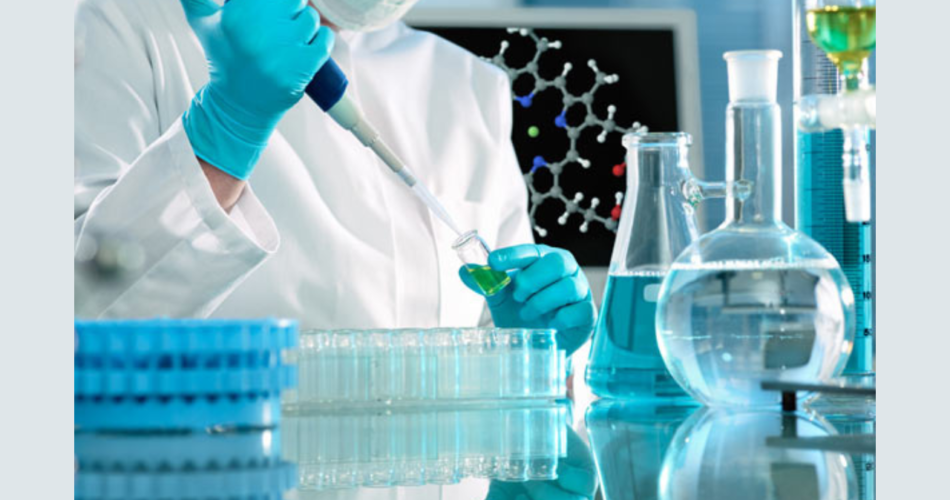NABL Accredited Laboratories: Ensuring Quality and Precision
In today’s world, precision and reliability in testing and calibration services are paramount for various industries, including healthcare, pharmaceuticals, food safety, and manufacturing. One of the most credible ways to ensure quality in these services is through accreditation. NABL accredited laboratories play a crucial role in maintaining high standards of testing, offering accuracy, credibility, and compliance with international guidelines.
What is NABL Accreditation?
Understanding NABL
The National Accreditation Board for Testing and Calibration Laboratories (NABL) is an autonomous body under the Quality Council of India (QCI). It provides accreditation to testing and calibration laboratories in accordance with internationally recognized standards, such as ISO/IEC 17025.
The Purpose of NABL Accreditation
NABL accreditation ensures that laboratories meet stringent quality and technical competence requirements. It signifies that a lab has well-defined processes, trained personnel, and high-quality infrastructure to deliver precise and accurate test results.
Why Choose NABL Laboratories?
1. Assurance of Quality and Accuracy
NABL accreditation guarantees that a laboratory follows standardized protocols to minimize errors, ensuring accuracy in test results. This is particularly critical in industries like healthcare, where precise diagnostic reports can impact patient treatment.
2. Compliance with International Standards
Accredited laboratories adhere to globally recognized standards such as ISO/IEC 17025, making their reports valid across different countries. This is beneficial for businesses engaged in international trade and regulatory compliance.
3. Enhanced Credibility and Reliability
An NABL-accredited lab enjoys greater trust among stakeholders, including government bodies, corporates, and individuals. This credibility ensures that reports from such labs are widely accepted and recognized.
4. Increased Business Opportunities
Many organizations and regulatory authorities mandate testing from NABL-accredited labs. Having accreditation can open doors to more contracts and partnerships, especially in industries like pharmaceuticals, construction, and food safety.
5. Reduction of Errors and Repetitive Testing
With stringent quality control measures in place, accredited laboratories minimize the chances of errors, reducing the need for re-testing and saving time and resources.
Sectors That Benefit from NABL Accredited Laboratories
Healthcare and Medical Diagnostics
Accurate lab testing is essential for diagnosing diseases and monitoring treatments. NABL-accredited medical labs ensure reliable pathology and diagnostic test results, crucial for patient care.
Pharmaceutical Industry
Pharmaceutical companies require stringent quality control to ensure drug efficacy and safety. Accredited labs provide essential testing services to meet regulatory requirements.
Food and Beverage Industry
Food safety is a significant concern worldwide. NABL accreditation helps ensure that food testing laboratories maintain the highest standards of hygiene and quality control.
Environmental Testing
With increasing concerns about pollution, environmental testing labs play a vital role in assessing air, water, and soil quality. NABL accreditation ensures that these labs maintain precision in their testing methods.
Manufacturing and Engineering
Industries involved in materials testing, calibration, and quality checks rely on NABL-accredited labs to validate product safety and durability.
How to Identify a NABL Accredited Laboratory?
1. Check for NABL Certification
NABL provides a unique accreditation number to each certified laboratory. This certification can be verified on the NABL website.
2. Look for ISO/IEC 17025 Compliance
Labs accredited by NABL follow ISO/IEC 17025 standards, ensuring competence in testing and calibration procedures.
3. Review the Laboratory’s Scope of Accreditation
Accredited labs specify the tests and calibrations they are certified for. Ensure the lab’s scope aligns with your testing requirements.
4. Reputation and Track Record
Choose labs with a good industry reputation, positive client feedback, and a track record of reliable services.
Steps to Get a Laboratory NABL Accredited
1. Understanding NABL Requirements
Laboratories must familiarize themselves with NABL accreditation criteria and guidelines before applying.
2. Implementation of Quality Management System (QMS)
A robust QMS ensures compliance with NABL standards and enhances lab efficiency.
3. Application Submission
The lab must submit an application to NABL, detailing its testing capabilities, equipment, and personnel qualifications.
4. Assessment and Audit
NABL conducts on-site assessments and audits to verify compliance with quality standards.
5. Accreditation Approval and Surveillance
Once approved, the lab receives NABL accreditation. Periodic audits ensure continued adherence to standards.
Conclusion
The role of NABL accredited laboratories in ensuring quality, precision, and reliability in testing services is indispensable. These labs help industries comply with global standards, improve credibility, and enhance consumer trust. Whether in healthcare, pharmaceuticals, or manufacturing, choosing an NABL-accredited lab ensures high-quality results that stand up to scrutiny.
Frequently Asked Questions (FAQs)
1. What is the significance of laboratory accreditation?
Accreditation signifies that a laboratory meets international standards for quality, accuracy, and reliability in testing and calibration services.
2. How can I verify if a lab is accredited?
You can check a lab’s accreditation status on the official NABL website, where certified laboratories are listed.
3. What industries benefit the most from accredited labs?
Industries like healthcare, pharmaceuticals, food safety, environmental testing, and manufacturing benefit the most from accredited laboratories.
4. What is ISO/IEC 17025, and why is it important?
ISO/IEC 17025 is an international standard for testing and calibration laboratories, ensuring their technical competence and quality management.
5. Does accreditation improve lab efficiency?
Yes, accreditation helps labs streamline processes, minimize errors, and improve efficiency in delivering accurate results.
6. How often do accredited labs undergo audits?
Accredited labs must undergo periodic audits to ensure they continue to comply with quality standards and best practices.
7. Can a non-accredited lab provide reliable test results?
While some non-accredited labs may offer reliable results, accreditation adds an extra layer of credibility and assurance.
8. What is the role of NABL in accreditation?
NABL assesses and accredits laboratories to ensure they meet international standards for quality and competence.
9. Is NABL accreditation mandatory for all laboratories?
No, but many regulatory bodies and organizations require testing from accredited laboratories to ensure data integrity.
10. How long does it take to get NABL accreditation?
The process can take several months, depending on the laboratory’s preparedness, documentation, and compliance with standards.
